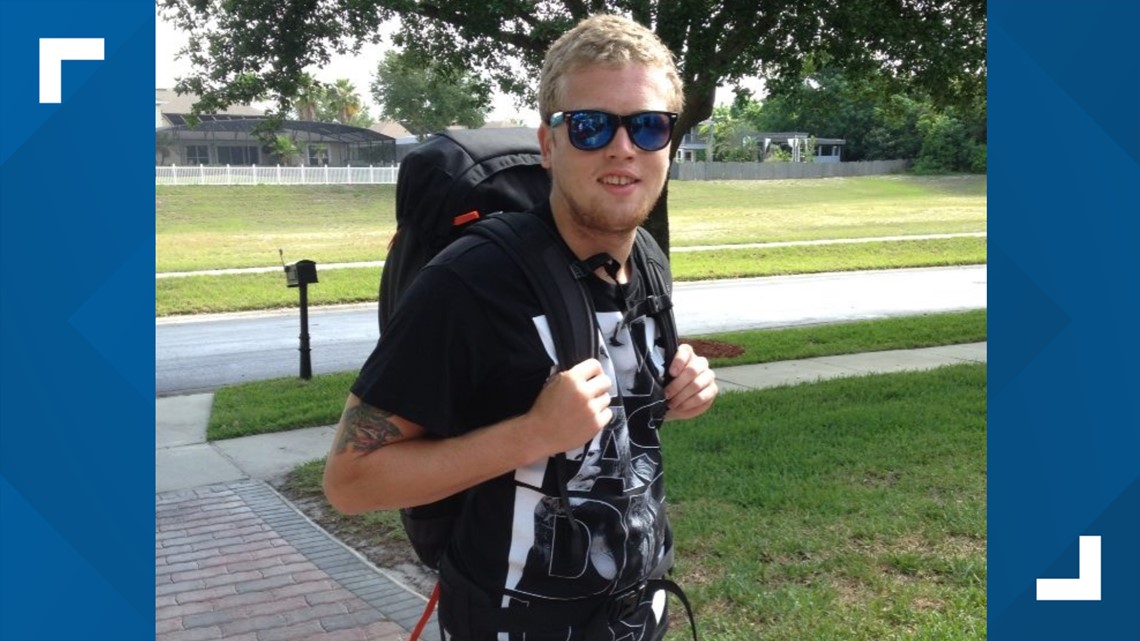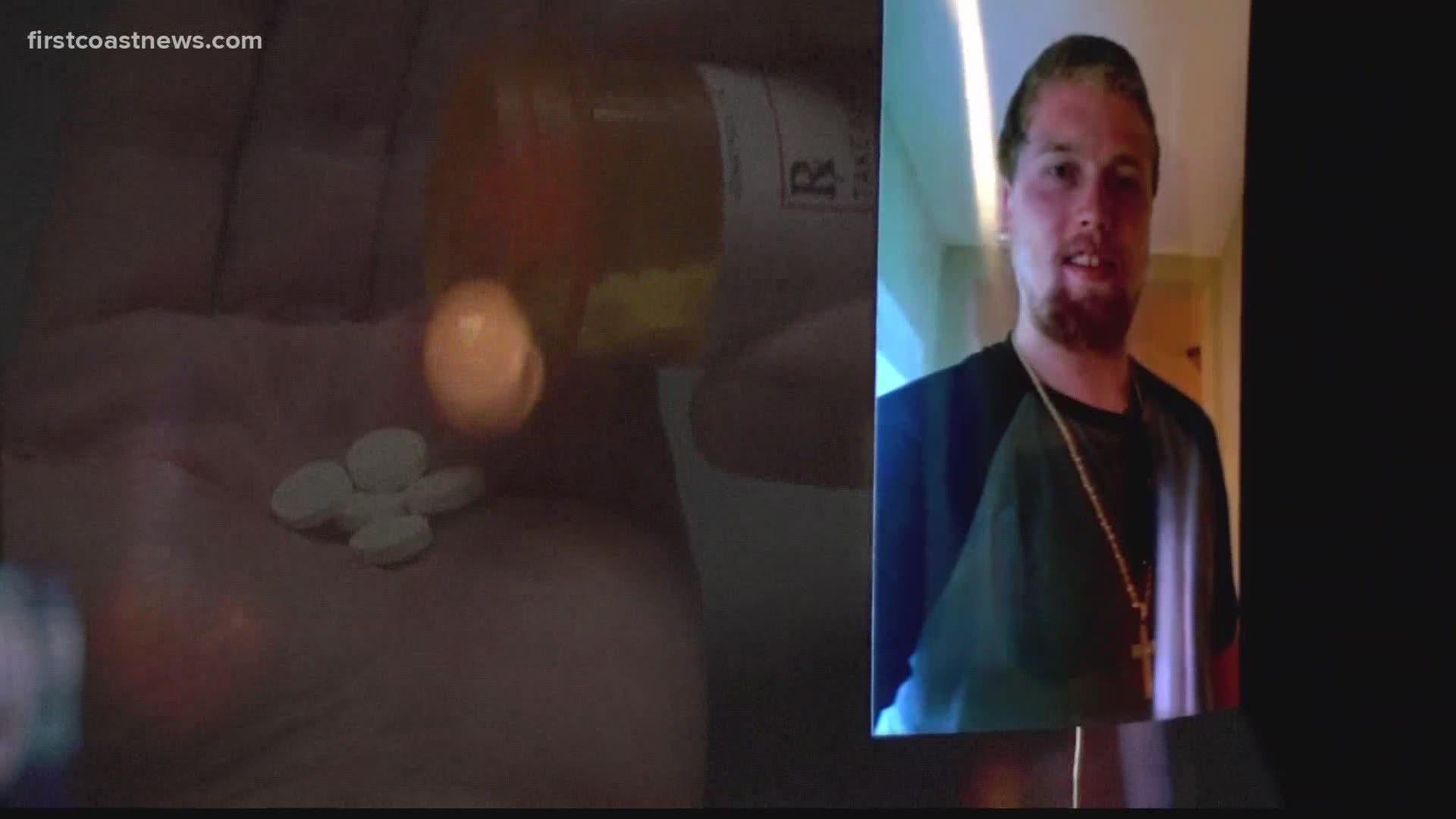JACKSONVILLE, Fla — For Chandler Cook, addiction started with experimentation.
“The first time I started using I was 13,” Cook told his mother, Michele Holbrook, in a video they made together in 2019 to raise awareness about addiction and help end the stigma.
He started with alcohol and pot. Years later, he said he turned to cocaine and pain pills. He was 19 before he realized he was an addict.


“I hurt my shoulder and was put on painkillers, and I got off of them and I couldn't,” Cook told his mom in 2019. “I got sick when I got off of them. That's when it went from getting pain killers from the doctor to finding them on the street and having to have them.”
When he made the video with his mother, he said he was one month shy of being clean and sober for one year.
“I didn't really understand that addiction is a daily fight. It’s not
something you can just get yourself clean and it's over,” Cook said. “It's something you have to fight every day.”
Holbrook said Cook was getting his life back on track and holding down a full-time job. Then the pandemic hit.
“He was happy. He was sociable. He had some great friends. Then all of a sudden, we get shut down, so he loses his job. He's in isolation and we're up here,” Holbrook recalled.
April 21, 2020, Holbrook was at her home in Fernandina Beach when her phone rang. Cook, just 28-years-old, had been found dead in his apartment. She believes he died of an accidental overdose.
“I think when you're depressed you put something in your body to make it feel better to take that pain away, and I think that's what happened,” Holbrook said.
Dr. Lantie Jorandby, Chief Medical Officer at Lakeview Health, an addiction treatment center, said the number of overdose deaths in Jacksonville started to spike in mid-March.
“That was when we started to see that spike, and it's about 20 percent higher than it was even from last year and when you compare it to even February of this year, so it is quite a bit of a spike,” Dr. Jorandby said.
The isolation, anxiety, and loss of work during the pandemic can all be triggers Dr.Jorandby said that can cause people to relapse and overdose.
“I don't want people to think shame on him. I want people to understand that addiction, mental illness is a disease, and it's something that they can't help, and it's something that if you have a loved one or if you have a friend, fight hard for them,” Holbrook said. “Get them in the places that they need.”
That's why she's sharing her story. To let those struggling know help is available.
“We’re counseling them to continue to go to their meetings. They can do it virtually, so they don't actually have to go in person. There are so many online twelve-step meetings that they can join,” Dr. Jorandby said. “We're encouraging them to keep appointments with their doctors, especially if they have a psychiatrist or therapist that they work with because pretty much everybody now is doing telemedicine.”
“Sit down on with your family member or Zoom them. Talk to them. Do what's necessary just to see them face to face just to make sure that they are okay,” Holbrook said.
Her faith is what she says is getting her through is, and her mission now is let those battling addictions know there is always hope.
“He was baptized a couple of years ago, so I know he is sitting at the feet of Jesus, and that's what gets me through every day is knowing that one day I'll see him again,” Holbrook said.
She hopes her son's legacy will help save lives.
“Reach out, and get the help you need,” Holbrook said.
Lakeview Health is providing free services to the entire country to get people through this crisis. You don’t have to be a patient. They have put together free online support groups and meetings for those in recovery and families with a loved one struggling with substance use.
Lakeview Health says it alumni and aftercare team is providing free recovery support groups twice a day at noon and 6 p.m. EST. The groups provide additional encouragement for those in recovery to stay on track during the pandemic.
Its sister facility is offering virtual meetings for families of loved ones suffering from substance use disorder. The group – F.A.C.E. - Family and Community Education for Addiction – is held every other Monday from 6 – 7 p.m. EST via a virtual platform and provides anonymity and confidentiality.
The Substance Abuse and Mental Health Services Administration (SAMHSA) has a free, confidential, 24/7, 365-day-a-year treatment referral and information service (in English and Spanish) for individuals and families facing mental and/or substance use disorders. You can reach the National Helpline by calling 1-800-662-HELP (4357).

